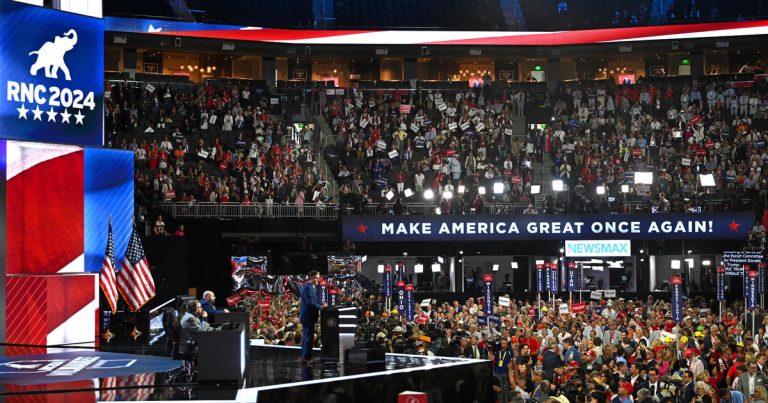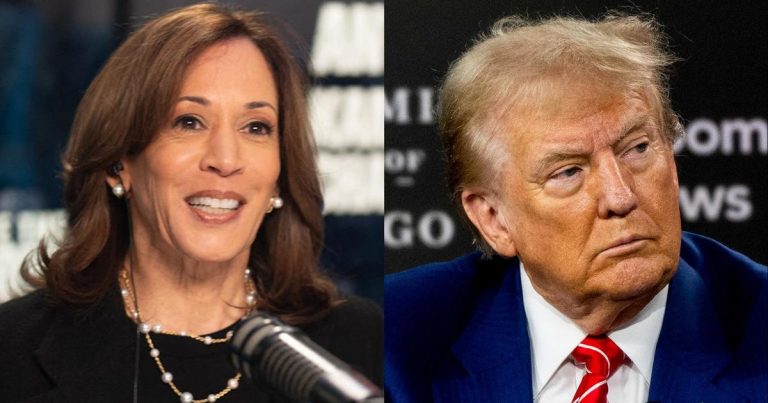Explanation of Trump and Harris’ beliefs on abortion and IVF access
Abortion issues are at the forefront of the upcoming November election, with the first presidential contest since the Supreme Court’s decision to overturn Roe v. Wade two years ago. This decision has led to restrictions on abortion access in 22 states, sparking intense debate and shaping the platforms of the two major presidential nominees – Donald Trump and Kamala Harris.
Democrats are rallying behind Harris, hoping to mobilize voters around the issue of abortion access. On the other hand, Republicans have advocated for leaving the decision to individual states, with lingering questions about the possibility of a federal abortion ban under a second term for former President Trump.
A recent CBS News poll revealed that 60% of voters support legal abortion in most or all cases, with Harris garnering substantial backing from women who support abortion rights, standing at 76%.
Let’s take a closer look at where each candidate stands on abortion.
Donald Trump’s Stance on Abortion
Throughout his campaign, Trump has expressed varying views on abortion, at times frustrating social conservatives and anti-abortion groups pushing for a nationwide ban. Trump has taken credit for the Supreme Court’s decision to overturn Roe v. Wade and highlighted the justices he appointed who supported this reversal.
Trump has emphasized that the issue of abortion is now in the hands of individual states, suggesting that voters should decide on abortion laws through legislative and electoral processes. While he has not explicitly endorsed a federal ban on abortion, he hinted at the possibility of restrictions up to 15 weeks in a radio interview.
Despite Democrats’ efforts to link him to abortion restrictions in multiple states, Trump has defended his stance on women’s reproductive rights. He has criticized stringent state laws on abortion and advocated for exceptions in cases of rape, incest, or when the mother’s life is in danger.
Trump’s comments on abortion timelines have stirred controversy among conservatives, prompting him to backtrack on his support for a proposed abortion amendment in Florida. He clarified that he would be voting against the amendment, which could leave the state’s restrictive abortion laws intact.
Kamala Harris’ Stance on Abortion
In contrast, Harris has made abortion rights a central theme of her campaign, rallying against restrictions set in motion by various states post-Roe v. Wade. She has labeled these restrictions as “Trump abortion bans” and vowed to champion legislation that reinstates federal abortion rights if passed by Congress.
During her acceptance speech at the Democratic National Convention, Harris underscored the importance of women’s freedom to make decisions about their bodies without government interference. Her campaign website reiterates her commitment to preventing a national abortion ban and affirming reproductive rights for all.
Access to IVF
The issue of in vitro fertilization (IVF) services also gained prominence following a ruling by the Alabama Supreme Court equating frozen embryos to children, thereby challenging the availability of IVF treatments. The presidential candidates have been drawn into this debate, addressing the implications for reproductive rights under their prospective leadership.
Donald Trump’s Stance on IVF
Trump has recently proposed a plan that would oblige the federal government to cover IVF costs or mandate insurance coverage for these treatments. This initiative aims to address the financial burden faced by individuals seeking IVF services, which can be exorbitant.
Kamala Harris’ Stance on IVF
However, Harris has squarely blamed Trump for any threats to fertility treatments, linking the Alabama Supreme Court’s ruling to the broader implications of the Roe v. Wade reversal. She has emphasized her support for women’s reproductive choices and lamented the adverse impact of restrictive policies on IVF services.
As the 2024 election draws near, the debate over abortion rights and access to reproductive healthcare remains a critical issue for voters. Trump and Harris represent contrasting views on this contentious topic, underscoring the significance of this decision for the future of women’s healthcare and reproductive rights in the United States.








